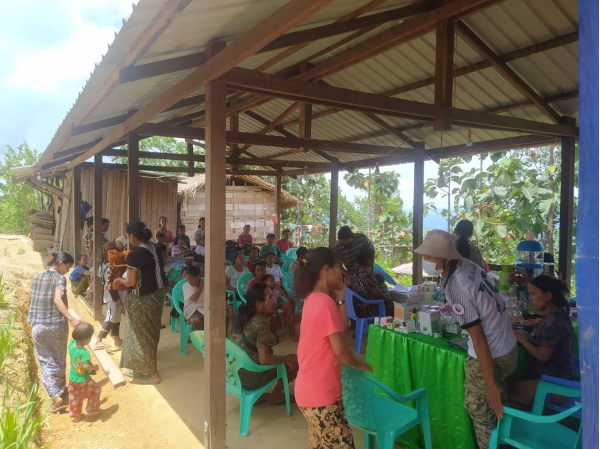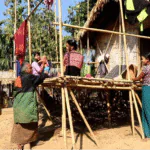Since the military takeover, the incidence of malaria in Chin State has increased significantly, almost doubling from last year, according to Chin State’s civil health organizations.
The townships with the most incidences of malaria are: Paletwa, Thantlang, Hakha, Kanpetlet, Matupi and Mindat, according to an organization that has been providing health care in Chin State since 2021.
This year malaria cases are reported in Falam Township where there was no malaria last year. Malaria cases are also reported in Tedim and Tongzan Townships, the secretary of the organization said.
“In Chin State, malaria is rising to a very alarming level. We have received several reports of malaria from Paletwa, Kanpetlet, Mindat and Thantlang during two years of coup. This year, the number of malaria cases has increased by double. Pregnant women and children aged 3 are among those who are hospitalized due to cerebral malaria,” he said.
Malaria medicine and malaria prevention activities should be started effectively and quickly in Chin State. The military council is using it as a weapon. It is controlling and putting pressure on organizations in the region in various ways so that malaria medicine and mosquito nets cannot reach the public.
Malaria cases in Chin State are mostly reported in the age group above 15 years. The incidence of Plasmodium falciparum (PF) malaria is 36 percent; Plasmodium Vivax (PV) malaria, 40 percent; and Mixed Infection, 24 per cent, according to the list of the organization that provides health care in Chin State.
“Even among children under 10, malaria cases are on the rise. For instance, the incidence rate among the children under 10 is about 18 percent. This is quite worrying. In Chin State, not only children, but even adults have not been infected with malaria for more than three years,” Secretary of the Health Organization said.
“Before the attempted Coup, Thantlang, Hakha, Falam, Tonzang, Mindat and Matupi Townships have already implemented the Malaria Elimination Strategy. The incidence of malaria in these townships are increasing at an alarming rate. We can say that there is a Malaria outbreak,” he said.
The high-infection rate is linked to taking shelter in the forests, the migration from one place to another, being unable to distribute Insecticide-treated mosquito nets for malaria prevention and the failure to provide early medical treatment to malaria patients.
The incidence of malaria is increasing due to the transmission of malaria to others through people with malaria and the difficulties in the purchase and transportation of quality antimalarial drugs, according to the groups providing health care.
Salai Van Sui San, Assistant Director of the Institute of Chin Affairs (ICA) said: “Currently, we have to deal with it randomly. There is no sufficient and effective treatment till now. The main reason is that there is not enough medicine. When the demand for finance is too high, funding and manpower is not available,” he said.
From April 2022 to April 2023, there were about 450 malaria patients in Chin State. There are malaria deaths, but the exact number of deaths is still not available, according to the officials of the health organization.
Sent by KMG





